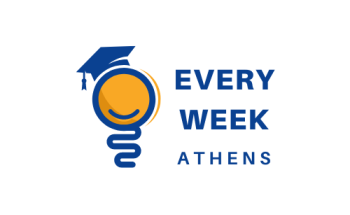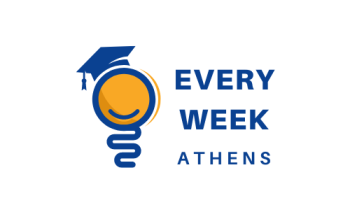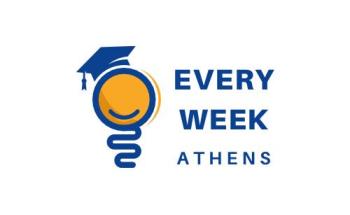
Unleashing Imagination: Transformative Play-Based Strategies for Toy-Free Kindergarten Learning
Discover innovative strategies in our 12-day Erasmus+ teacher training course, "Kindergarten Without Toys." Learn to design engaging, play-based activities that foster imagination and exploration. Create a nurturing environment where young learners thrive through discovery, enhancing their creativity and critical thinking skills. Join us to transform your teaching approach and inspire your student
Description
Join our immersive 12-day Erasmus+ teacher training course, "Kindergarten Without Toys," designed to revolutionize your approach to early childhood education.
This program offers a unique opportunity to explore innovative strategies for fostering imagination and creativity in young learners through play-based activities.
Throughout the course, participants will delve into the principles of toy-free learning environments, focusing on how to create spaces that encourage exploration and discovery. You will learn to design and implement activities that stimulate children's natural curiosity and support their cognitive and social development.
A highlight of the program is the opportunity to visit a local kindergarten that has successfully adopted a toy-free approach. During this visit, you will observe a live session, gaining firsthand insight into how educators facilitate learning without traditional toys. This experience will allow you to see the impact of such an environment on children's engagement and creativity.
Following the observation, participants will have the chance to apply their learning by designing and implementing a hands-on activity in the same kindergarten. This practical experience will enable you to test your ideas and receive feedback from experienced educators, helping you refine your techniques and strategies.
In addition to these practical components, the course includes workshops and discussions led by experts in early childhood education. These sessions will cover topics such as the role of the educator in a toy-free environment, strategies for fostering collaboration and communication among young learners, and methods for assessing the effectiveness of play-based activities.
By the end of the course, you will have a comprehensive understanding of how to create and sustain a nurturing, toy-free learning environment that encourages children to explore, imagine, and discover. Join us to transform your teaching practice and inspire the next generation.
Learning objectives
The "Kindergarten Without Toys" course is designed to equip educators with the skills and knowledge necessary to create engaging, toy-free learning environments that foster creativity, exploration, and critical thinking in young learners. The learning objectives of this course are as follows:
-
- Understanding Toy-Free Education
- 1.1. Comprehend the principles and benefits of toy-free learning environments.
- 1.2. Recognize the role of imagination and creativity in early childhood development.
-
- Designing Play-Based Activities
- 2.1. Develop skills to design and implement play-based activities that encourage exploration and discovery.
- 2.2. Learn to create lesson plans that integrate real-world issues and promote inquiry-based learning.
-
- Implementing Inquiry-Based Learning
- 3.1. Gain proficiency in incorporating the Scientific Method into lesson planning.
- 3.2. Understand how to facilitate productive teamwork and encourage multiple solutions to problems.
-
- Creating a Nurturing Learning Environment
- 4.1. Explore strategies for maintaining student engagement without traditional toys.
- 4.2. Learn to transform everyday materials into educational tools that stimulate learning.
-
- Practical Application and Observation
- 5.1. Observe a toy-free kindergarten session to understand practical implementation.
- 5.2. Apply learned strategies by designing and conducting a hands-on activity in a real classroom setting.
-
- Integrating STEAM Approaches
- 6.1. Discover how to incorporate STEAM (Science, Technology, Engineering, Arts, and Mathematics) into early education.
- 6.2. Learn to use board games and other non-traditional tools to support STEAM learning paths.
-
- Professional Development and Collaboration
- 7.1. Engage in collaborative project work to apply course concepts.
- 7.2. Participate in job shadowing to observe and learn from experienced educators.
By the end of the course, participants will have a comprehensive understanding of how to create and sustain a toy-free learning environment that encourages children to explore
Methodology & assessment
Methodology:
Interactive Lectures and Discussions
1.1. Engage participants through lectures that introduce key concepts and theories related to toy-free education.
1.2. Facilitate group discussions and brainstorming sessions to encourage the exchange of ideas and experiences among participants.
Hands-On Workshops
2.1. Conduct workshops that provide participants with opportunities to practice designing and implementing play-based activities.
2.2. Use real-world scenarios to help participants apply inquiry-based learning and the Scientific Method in lesson planning.
Observation and Practical Application
3.1. Include a visit to a local kindergarten to observe a toy-free session, allowing participants to see the practical application of course concepts.
3.2. Provide opportunities for participants to design and conduct a hands-on activity in a real classroom setting, receiving feedback from peers and instructors.
Collaborative Project Work
4.1. Encourage participants to work in groups to develop projects that integrate course concepts, fostering collaboration and teamwork.
Cultural and Contextual Learning
5.1. Offer optional cultural programs that explore STE[A]M approaches in local contexts, enhancing participants' understanding of diverse educational environments.
5.2. Integrate cultural experiences to provide a broader perspective on educational practices.
Assessment and Evaluation
6.1. Use a combination of formative and summative assessments to evaluate participants' understanding and application of course content.
6.2. Assess participants through project presentations, participation in discussions, and practical application of learned strategies.
6.3. Provide personalized feedback to support participants' professional growth and development.
Certification details
Upon successful completion of the "Kindergarten Without Toys" course, participants will receive a comprehensive certification package that acknowledges their commitment to professional development and their mastery of innovative educational strategies. The certification details are as follows:
Certificate of Completion
- 1.1. Participants will be awarded a Certificate of Completion, which serves as formal recognition of their participation in the 12-day Erasmus+ teacher training course.
- 1.2. The certificate will detail the course title, duration, and key learning objectives, highlighting the participant's dedication to enhancing their teaching practice.
- 1.3. It will be signed by the course instructors and the hosting institution, adding credibility and value to the participant's professional portfolio.
Europass Mobility Document
- 2.1. Participants will receive a Europass Mobility Document, which records the skills and competencies acquired during the course.
- 2.2. This document is recognized across Europe and serves as a valuable tool for showcasing the participant's international learning experience and professional development.
- 2.3. The Europass Mobility Document will include detailed information about the course content, methodologies, and practical experiences, providing a comprehensive overview of the participant's achievements.
Follow-Up and Support
- 3.1. Participants will receive guidelines for follow-up activities, encouraging them to continue applying and refining the skills acquired during the course.
3.2. The course organizers will offer ongoing support and networking opportunities, enabling participants to connect with peers and experts in the field of early childhood education.
This certification package not only validates the participant's achievements but also empowers them to implement transformative educational practices that inspire young learners and foster a love of learning.
Pricing, packages and other information
-
Price:960Euro
Additional information
-
Language:English
-
Target audience ISCED:Early childhood education (ISCED 0)Primary education (ISCED 1)Other
-
Target audience type:TeacherStudent TeacherPedagogical Adviser
-
Learning time:25 hours or more
Past sessions
More courses by this organiser




